Mysteries of the Bible unveiled: discover the ancient lineage of Black people and their significant role in biblical narratives.
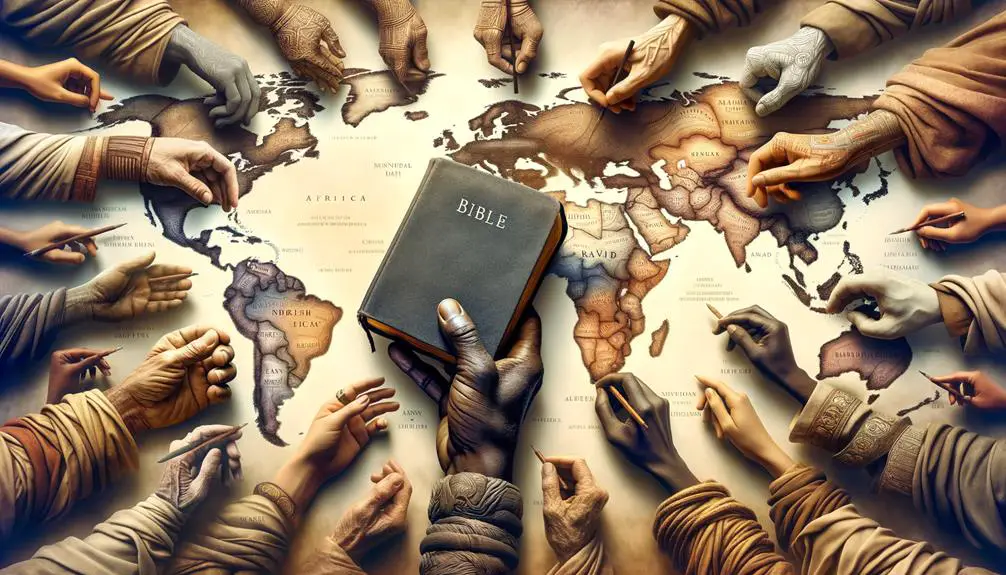
Where Did Blacks Come From in the Bible
As you navigate through the tapestry of biblical narratives, you'll find that the lineage of Black people in the Bible is as rich and diverse as a mosaic. From the descendants of Ham to the kingdoms of Cush, Mizraim, and Sheba, these stories weave a fascinating history that's often overlooked.
You'll encounter figures who've left indelible marks on biblical history and beyond. But the question remains: how do these ancient narratives connect to modern discussions on race and heritage? Stick around, and you might uncover threads that tie the past to the present in ways you never expected.
Key Takeaways
- The Bible does not directly link Ham's lineage with Black skin or imply their servitude, debunking a common misinterpretation.
- Cushites, descendants of Cush, were an influential group historically spanning modern-day Sudan and Ethiopia, contributing to biblical heritage.
- Mizraim, the biblical term for Egypt, highlights the profound cultural and religious impact of ancient Egyptian civilization on the biblical narrative.
- Figures of African descent, like Nimrod and the Queen of Sheba, play significant roles in the Bible, showcasing diverse contributions and perspectives.
The Lineage of Ham
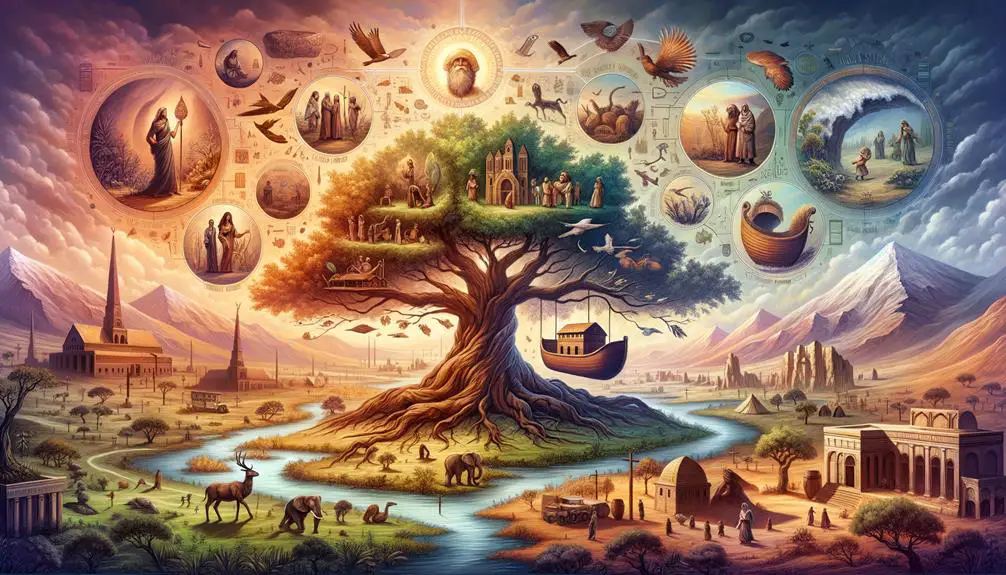
Historically, the lineage of Ham, one of Noah's sons, has often been scrutinized for its purported connection to the origins of Black people in biblical narratives. This scrutiny stems from interpretations of Noah's curse, a pivotal moment that has led to extensive genealogical debates among scholars and theologians alike. You'll find that the curse, pronounced by Noah upon Ham's son Canaan, has been misapplied by some to justify the subjugation of Black people, suggesting that Ham's descendants were cursed with blackness and servitude.
Yet, this interpretation doesn't hold up under scholarly scrutiny. The biblical text doesn't explicitly link Ham's lineage with Black skin or a predestined status of servitude. Instead, the curse is specifically directed at Canaan, leading to a narrow lineage affected by Noah's words. This specificity raises questions about the broader application of the curse to all of Ham's descendants, including those not mentioned in the curse itself.
The genealogical debates surrounding Ham's lineage involve a careful examination of biblical genealogies, which reveal a complex web of relationships and descents that resist simplistic interpretations. Scholars argue that these debates must consider the historical and cultural contexts in which the biblical narratives were written. Understanding these contexts helps to clarify the text and dismantle long-held misconceptions about race and the Bible.
In navigating these genealogical debates, it's crucial to approach the biblical text with a critical eye, recognizing the nuances and implications of Noah's curse within the broader tapestry of biblical history. This approach allows for a more informed and nuanced understanding of the origins of Black people in biblical narratives, free from the distortions of historical misinterpretations.
Cush and the Cushites
Delving into the narrative of Cush and the Cushites unveils a critical chapter in the biblical account of the origins and movements of ancient peoples, shedding light on the complex dynamics of race and identity within the sacred texts. The Cushites, descendants of Cush, son of Ham, play a pivotal role in the unfolding of biblical history, offering insights into the ancient world's view on ethnicity and divine providence.
The Cushite dynasties, as presented in biblical genealogies and stories, are marked by their significant influence and presence in regions now encompassing modern-day Sudan, Ethiopia, and parts of Egypt. This geographical spread underscores the Cushites' pivotal role in the ancient Near East's socio-political and religious landscape.
Cushite mythology, interwoven with their historical narrative, enriches our understanding of how these people viewed themselves and their place in the world. The myths, often encapsulating themes of heroism, divine favor, and the struggle against chaos, provide a window into the Cushites' cultural and spiritual world.
Aspect |
Description |
Significance |
|---|---|---|
Geographical |
Spanned modern-day Sudan, Ethiopia, parts of Egypt |
Highlights their widespread influence |
Genealogical |
Descendants of Cush, son of Ham |
Connects them deeply to biblical lineage |
Cultural |
Rich in mythology and traditions |
Offers insights into their worldview |
Political |
Established dynasties and kingdoms |
Demonstrates their power and autonomy |
Spiritual |
Contributions to biblical and Cushite mythology |
Reflects their deep spiritual heritage |
This examination of the Cushites not only enriches our understanding of biblical narratives but also invites a deeper reflection on the interplay between race, identity, and divine destiny in ancient texts.
Mizraim and Egypt
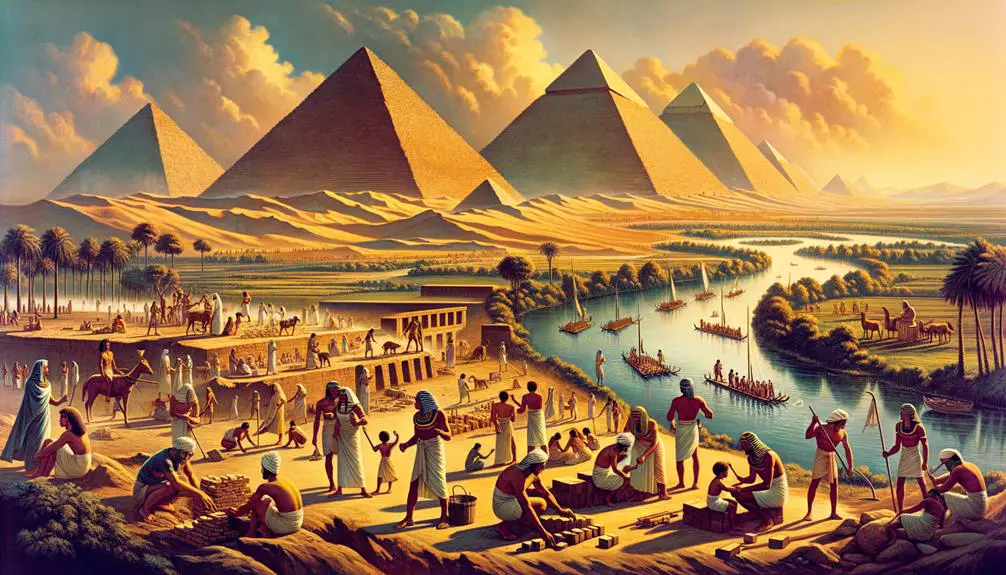
You're now exploring the connection between Mizraim, the biblical name for Egypt, and its significant role in the ancestral lineage of Black people.
This examination reveals how Mizraim's descendants influenced the geographical spread and cultural landscape of ancient Egypt.
Understanding this relationship provides a deeper insight into the historical and biblical narratives surrounding Black heritage.
Mizraim: Egypt's Biblical Name
In biblical context, 'Mizraim' serves as the ancient designation for the territory and civilization known today as Egypt, revealing a deep-rooted connection between the scriptural narratives and historical geography.
This term doesn't merely denote a geographical location; it encapsulates the rich tapestry of cultural and religious practices that defined ancient Egyptian civilization.
You'll find that the architectural influence of Mizraim is monumental, literally shaping the landscape with its pyramids and temples, which aren't just tourist attractions but relics of a deeply spiritual people.
These structures were central to the religious practices in Mizraim, serving as hubs for worship and interaction with the divine.
Analyzing Mizraim through this lens offers a nuanced understanding of its pivotal role in biblical history and its lasting legacy in cultural and religious spheres.
Descendants' Geographical Spread
As we explore the descendants' geographical spread from Mizraim, it's crucial to understand how this migration shaped the ancient world's demographic and cultural landscapes. The movement from Mizraim, identified with ancient Egypt, into neighboring regions and beyond, played a pivotal role in the early African diaspora, influencing migration patterns across continents.
The spread from Egypt seeded cultures with rich traditions, weaving a tapestry of diversity.
Migration patterns from Mizraim forged trade routes, facilitating the exchange of ideas and goods.
This movement contributed to the complexity of societies, challenging our understanding of ancient civilizations.
Analyzing these patterns provides insight into the dynamics of human movement and its profound impact on the development of cultures across the globe.
Cultural Impacts on Egypt
Exploring the cultural impacts on Egypt, it becomes clear that Mizraim's role was not just as a geographical origin but as a crucible for the development of rich, enduring legacies. You'll see that Egypt's culture, deeply influenced by Mizraim, was a pioneer in ancient diplomacy and architectural innovations. These elements were not isolated; they interacted in ways that shaped the civilization's trajectory.
Aspect |
Description |
Impact on Egypt |
|---|---|---|
Ancient Diplomacy |
Establishment of international relations and treaties. |
Facilitated trade and alliances. |
Architectural Innovations |
Introduction of monumental structures like pyramids. |
Symbolized power and knowledge. |
Art and Writing |
Development of hieroglyphics and intricate art forms. |
Preserved history and culture. |
Agriculture |
Advanced irrigation techniques. |
Sustained population growth. |
Religion |
Polytheistic beliefs influenced by natural and human forces. |
Unified society through practices. |
Analyzing these elements, you'll appreciate how Egypt, under Mizraim's influence, became a beacon of innovation and culture in the ancient world.
The Kingdom of Sheba
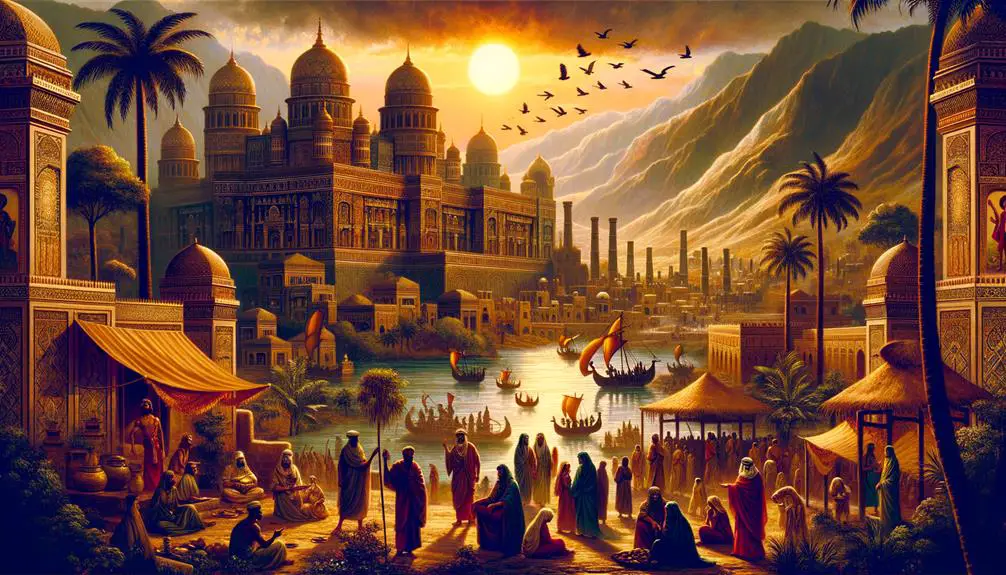
Delving into biblical narratives, the Kingdom of Sheba emerges as a significant entity, deeply intertwined with the religious and cultural tapestry of ancient times. This kingdom, often cloaked in mystery and allure, is notably marked by the visit of the Queen of Sheba to King Solomon. This encounter, rich in symbolic exchanges and laden with spiritual significance, throws light on the interconnectedness of ancient civilizations through trade routes that not only facilitated the exchange of goods but also ideas, technologies, and cultures.
The Kingdom of Sheba, located at a strategic crossroads of trade routes between the Red Sea and the Indian Ocean, served as a vital conduit for spices, gold, and incense. This position enabled it to amass wealth and influence that resonated through the ages, leaving an indelible mark on the historical and biblical narrative.
- *The Queen of Sheba's journey to Solomon, seeking wisdom, underscores the value placed on knowledge and understanding across cultures.*
- *The extensive trade networks highlight the interconnectedness of ancient societies, fostering an early form of globalization.*
- *The enduring legacy of Sheba in both biblical texts and Ethiopian tradition evokes a sense of mystery and reverence.*
In exploring the Kingdom of Sheba, you're not just uncovering a historical or biblical curiosity; you're tapping into the rich tapestry of human history that showcases the complexities of interactions among ancient civilizations. The story of Sheba and its queen serves as a testament to the profound impact that trade, diplomacy, and cultural exchange have had in shaping the world's religious and cultural landscapes.
Phut and the Libyans
In the tapestry of biblical narratives, Phut and the Libyans emerge as a pivotal group, often referenced in conjunction with ancient civilizations' dynamics and interactions. You'll find that Phut's descendants, as mentioned in the Bible, are intricately linked with the region known today as Libya. This connection opens a window into understanding the role of African nations in biblical history, particularly through the lens of Libyan trade.
Analyzing the biblical text, it's clear that the descendants of Phut were regarded as a significant entity. Their mention alongside other nations underlines their importance in the geopolitical and economic landscapes of the time. The association of Phut with Libya provides a historical context that enriches our understanding of the African continent's role in biblical narratives.
Libyan trade, an essential aspect of Phut's descendants' livelihood, played a crucial role in the ancient world. This trade not only facilitated economic exchanges but also cultural and technological interactions among various civilizations. It's fascinating to consider how the trade routes of Phut's descendants might've connected them with other influential players of the time, contributing to a vibrant intercultural exchange.
Ethiopia in the Scriptures
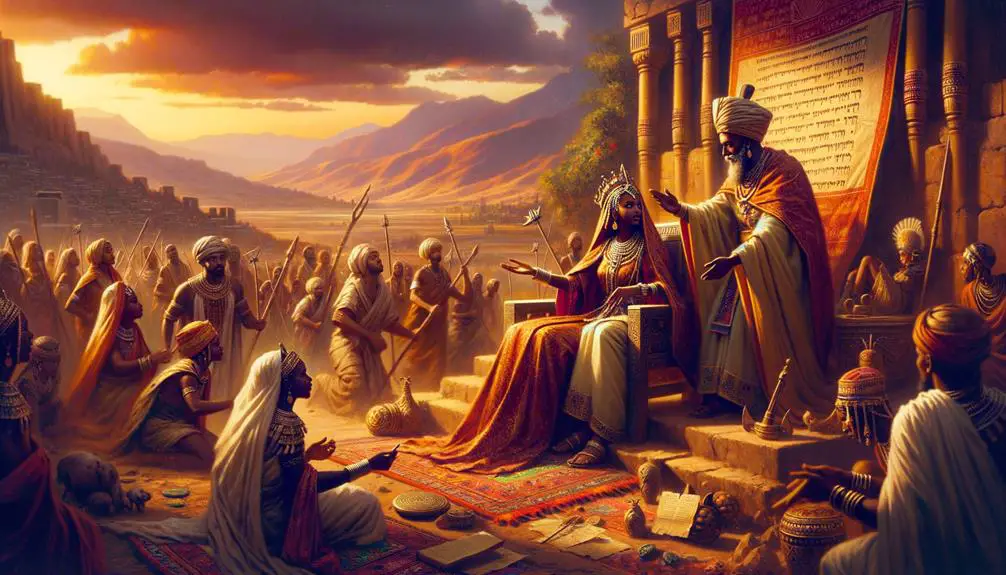
As we turn our attention to Ethiopia in the Scriptures, it's clear that this region holds a significant place within the biblical narrative, offering insight into its spiritual and historical context. Ethiopia, often referred to as Cush in the Bible, isn't just a geographical location; it's a testament to the rich tapestry of biblical history and its intersection with African civilizations. The mention of Ethiopia and its people throughout the Scriptures provides a window into the interactions and the profound connections between African regions and the biblical world.
One can't discuss Ethiopia in the Scriptures without highlighting the Axumite Empire. This ancient civilization, which thrived in what's now modern-day Ethiopia and Eritrea, was a hub of commerce, culture, and Christianity. The Axumite Empire's significance in early Christian history underscores Ethiopia's pivotal role in the spread of Christianity across Africa.
- The story of the Queen of Sheba visiting King Solomon not only mesmerizes with its tale of wisdom and wealth but also underscores Ethiopia's integral connection to the biblical narrative.
- The conversion of the Ethiopian eunuch, as recounted in the Acts of the Apostles, symbolizes the spread of Christianity to the African continent, marking Ethiopia as a beacon of early Christian faith.
- Ethiopia's mention alongside nations like Egypt and Assyria in prophecies and psalms evokes a sense of divine favor and a foretelling of a time when all nations would unite in worship.
In analyzing Ethiopia within the biblical context, it's evident that this region isn't merely a backdrop but a key player in the unfolding story of faith, culture, and divine promise.
The Land of Canaan
You'll find that the Land of Canaan holds a pivotal position within biblical narratives, often depicted as a region rich in history and cultural significance.
Its geographical importance can't be overstated, serving as a crossroads for ancient civilizations and a focal point for numerous historical conflicts.
The Canaanites, within this context, aren't merely inhabitants but key players in the unfolding of biblical stories, shaping the socio-political landscape of the era.
Canaan's Geographic Significance
The Land of Canaan holds a pivotal role in biblical narratives, serving as a crucial crossroads of ancient civilizations and a focal point for significant theological and historical events. Its strategic location facilitated Canaanite trade, connecting various cultures and economies. The region's fertile lands spurred agricultural innovations, contributing to its wealth and stability.
- Canaanite trade fostered unparalleled cultural exchange, blending ideas and beliefs.
- Agricultural innovations in Canaan fed not just the body but the spirit of progress and community.
- The land's strategic position shaped the destiny of countless peoples, echoing through history.
Analyzing Canaan's geographic significance offers a deeper understanding of its role in the ancient world, underlining its impact on trade, agriculture, and the unfolding of biblical events.
Canaanites in Biblical Context
Delving into the biblical context, it becomes clear that Canaanites played a crucial role in shaping the narratives and theological constructs found within the scriptures. Their culture, especially the worship of Canaanite deities, influenced the religious practices and beliefs of neighboring communities, including those of the Israelites.
This interaction is documented through various accounts that highlight the complexity of Canaanite religion and its pantheon, which often stood in contrast to monotheistic tendencies emerging in the region.
Furthermore, Canaan's strategic position fostered extensive trade networks, connecting them with distant lands and peoples. These networks not only facilitated the exchange of goods but also ideas, further embedding Canaanite influence across the ancient Near East.
This intricate interplay of religion and commerce underscores the Canaanites' significant contribution to biblical history and its enduring narratives.
Historical Conflicts: Canaan
Throughout history, Canaan has been a battleground, its strategic location making it a nexus for numerous conflicts that have shaped the region's socio-political landscape. Modern interpretations, supported by archaeological evidence, suggest that these conflicts weren't merely territorial but also deeply cultural, influencing the identity and historical narratives of the people involved.
- The destruction of ancient cities, unearthing the layers of violence that have swept through Canaan.
- The displacement of populations, hinting at the extensive human cost of these conflicts.
- The fusion of cultures, a testament to the resilience and adaptability of the inhabitants amidst turmoil.
Analyzing the historical conflicts of Canaan through archaeological evidence and modern interpretations provides a nuanced understanding of the region's complex past, highlighting the interplay between conflict, culture, and identity.
Biblical Figures of African Descent
Several biblical figures of African descent have significantly influenced the narratives and teachings within the scriptures, embodying diverse cultural and historical contexts. Notably, Nimrod, a descendant of Ham, established a formidable empire that included regions in Africa. This empire, often associated with significant biblical landmarks and events, showcases the early integration and prominence of African descendants in biblical history.
Furthermore, the account of Solomon's marriage to the Queen of Sheba, a figure tied to African royalty, underscores the interconnectedness of African and Jewish histories. This alliance through marriage not only enriched Solomon's kingdom culturally and spiritually but also symbolizes a broader narrative of unity and shared wisdom between African and Semitic peoples.
Analyzing these accounts, you'll find that the depiction of African descendants in the Bible isn't monolithic. Instead, it reflects a spectrum of roles ranging from rulers and warriors to allies and spouses, contributing to the rich tapestry of biblical history. These stories, embedded within the larger biblical narrative, offer a nuanced perspective on the contributions and presence of African peoples in sacred texts. They challenge simplistic interpretations and encourage a deeper understanding of the complex interplay of ethnicity, culture, and faith in ancient times.
Frequently Asked Questions
How Do Modern Genetic Studies Align With the Biblical Accounts of the Origins of African Peoples?
You're diving into how modern genetic studies, with their focus on genetic markers and migration patterns, offer insights that can be paralleled with ancient texts. These studies map out the journey of African peoples, revealing a complex tapestry of origins and movements.
While the Bible provides a historical narrative, genetics adds a layer of empirical evidence, showing how these narratives might intersect. It's a fascinating intersection of science and scripture, deepening our understanding of human history.
Has the Interpretation of the Identity and Origins of Black People in the Bible Changed Over Time Due to Cultural or Societal Shifts?
Yes, the interpretation of the identity and origins of black people in the Bible has indeed evolved due to both cultural appropriation and societal evolution.
As you delve into this topic, you'll find that shifts in societal values and understanding have significantly influenced how biblical texts are understood and taught.
This evolution reflects a broader pattern of change in how history and identity are perceived and discussed in scholarly and cultural contexts.
How Do Other Ancient Texts Outside of the Bible, Such as Those From Mesopotamia or Ancient Egypt, Contribute to Our Understanding of the Biblical Narrative Regarding Black People?
Exploring ancient texts like Mesopotamian cosmology and Egyptian mythology, you'll find they offer rich insights into the biblical narrative regarding peoples of the ancient world. These sources provide a broader understanding of cultural, societal, and religious contexts that intersect with biblical stories.
Are There Any Biblical Stories or Figures That Have Been Reinterpreted in Contemporary Times to Reflect a More Inclusive Understanding of Race and Ethnicity?
Yes, contemporary interpretations of biblical stories and figures often embrace cultural symbolism and artistic representations to reflect a more inclusive view of race and ethnicity.
You'll find that scholars and artists alike reinterpret characters and narratives, infusing them with diverse racial backgrounds.
This approach not only enriches the biblical narrative but also challenges traditional views, promoting a broader understanding of humanity's interconnectedness across historical and cultural divides.
How Have Archaeological Findings Impacted the Traditional Biblical View of Where Black People Come From?
Recent archaeological findings have challenged traditional narratives, revealing how cultural biases have skewed textual interpretations.
You've seen shifts in understanding, layers of history unearthed, reshaping perceptions of race in ancient texts.
These discoveries offer a lens, critiquing past views with scholarly precision. They highlight the dynamic interplay between archaeology and biblical stories, urging a reevaluation of long-held beliefs about the origins and representation of black people within these sacred texts.
Conclusion
In analyzing the biblical narrative, it's clear that individuals of African descent have a deeply rooted presence, spanning from the lineage of Ham to the Kingdom of Sheba. These references underscore a complex web of cultural and historical intersections within the ancient texts.
Curiously, amidst these ancient accounts, the anachronistic depiction of Ethiopia stands out, suggesting a nuanced understanding of African civilizations that predates modern geographical boundaries.
This exploration reveals the Bible's intricate tapestry of human heritage, highlighting the profound connections between Africa and the biblical world.


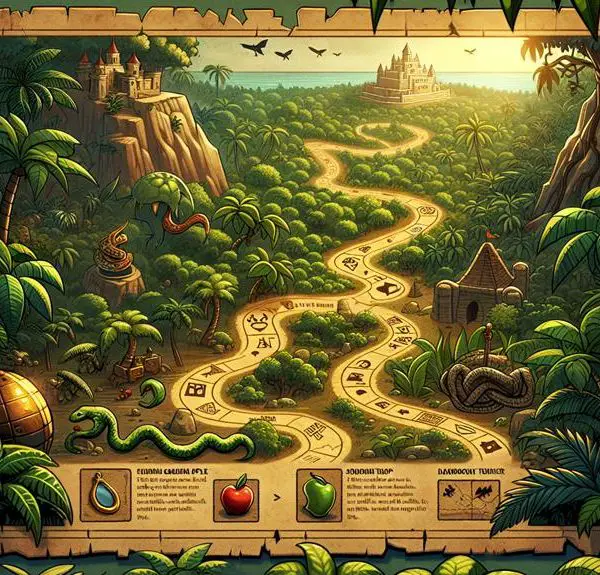
Sign up